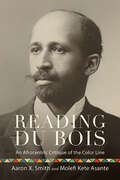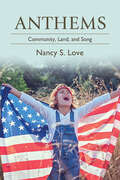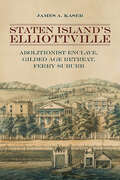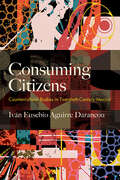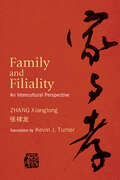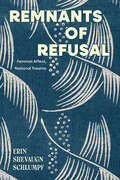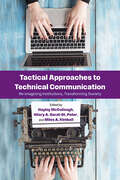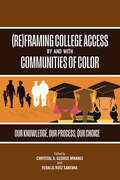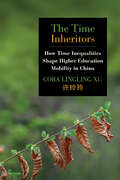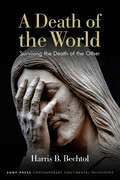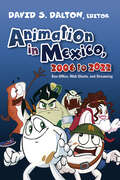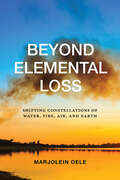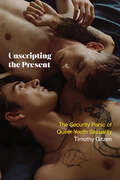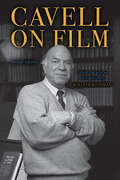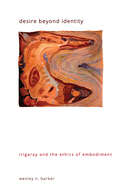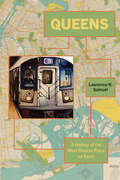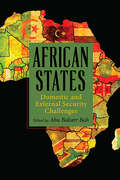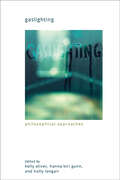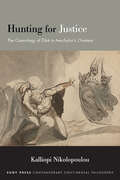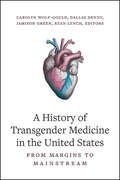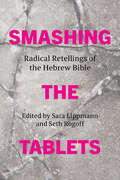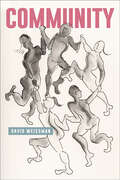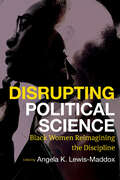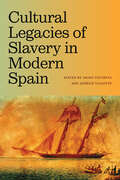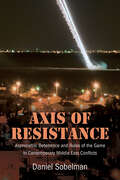- Table View
- List View
Reading Du Bois: An Afrocentric Critique of the Color Line (SUNY series in African American Studies)
by Molefi Kete Asante Aaron X. SmithA clear, critical, accessible, and ultimately hopeful discovery voyage through the seas of Du Bois's language and ideas.Offering a vision both hopeful and thoughtful, Reading Du Bois is an Afrocentric reexamination of the work of one of the most important intellectuals of our time. Du Bois wanted to solve the issue of race dividing American society. Aaron X. Smith and Molefi Kete Asante take one of Du Bois's key concepts, the idea that the problem of his century was going to be the color line, and demonstrate that such a reader of that concept provides fresh insights into our present interpersonal and political situation. The application of Du Bois's concept such as the color line reveals the subject place of African American people is not merely a marginal space but rather a central space to all who seek to bring justice, democracy, and optimism.
Anthems: Community, Land, and Song (SUNY series in New Political Science)
by Nancy S. LoveAn examination of struggles for national sovereignty and social justice as seen through patriotic anthems and songs of resistance.Anthems are songs of loyalty and devotion with religious or quasi-religious meanings, typically associated with nation-states. Singing patriotic songs together encourages a sense of shared identity and unified community among citizens. Anthems compares traditional American anthems, such as "The Star-Spangled Banner" and "America the Beautiful," with anthems of resistance from contemporary social movements, such as Occupy Wall Street, Black Lives Matter, and Standing Rock. Although seldom fully recognized by political scientists, musical song plays a significant role in struggles for national unity and social justice. While America's national anthems celebrate a unitary (white) nation, these alternative anthems challenge the definition of sovereignty as property that characterizes modern Western democracies. They offer an alternative vision of a multicultural democracy still struggling to emerge. Written from an interdisciplinary perspective on culture, economics, and politics best described as critical theory, Anthems is intended for scholars, students, and, most important, citizens.
Staten Island's Elliottville: Abolitionist Enclave, Gilded Age Retreat, Ferry Suburb
by James A. KaserThe story of a 19th century Staten Island town that nurtured the careers of nationally significant reformers, abolitionists, and transcendentalists.This book traces five decades of community life in a nineteenth-century Staten Island neighborhood informally called Elliottville, where extraordinary people lived. Its history illuminates the impact of transformative cultural, social, economic, and political change stemming from abolitionism, transcendentalism, the women's suffrage movement, and the rapid growth of the nation. Begun in 1839 as a therapeutic retreat, New Englanders with ties to Emerson settled there, forming a distinctive community. Their achievements in art, literature, and social reform attracted even more like-minded people, including Francis George Shaw, George William Curtis, Theodore Winthrop, Robert Gould Shaw, Helena de Kay Gilder, Charles de Kay, Anna Leonowens, and Maria "Midy" Morgan. Its vibrant intellectual life was threatened by an influx of Gilded Age men in the 1870s and destroyed when a freight rail line separated Elliottville from the Kill Van Kull. Drawing on a wealth of archival material and unique maps and illustrations, this book gives a vivid picture of how one small community could impact the country's intellectual and social development.
Consuming Citizens: Countercultural Bodies in Twentieth-Century Mexico (SUNY series, Genders in the Global South)
by Iván Eusebio Aguirre DarancouExplores twentieth-century Mexican counterculture through the lens of pleasure, body autonomy, and music and film undergrounds.Consuming Citizens offers a fresh conception of twentieth-century Mexican cultural production by critically tracing the underside of mestizo modernity. Examining a diverse corpus that includes poetry, song, avant-garde film, and more from the 1920s to '80s, the volume uses queer, feminist, and psychedelic theories to understand counterculture-and especially different acts of consumption-as a way of creating culture and alternative social structures. Practices of consuming media, sex, and drugs become means of generating community among subjects who have been marginalized by the nominally inclusive mestizo nation. Consuming Citizens thus rethinks nationalism, citizenship, and society in relation to, and as creations of, countercultural bodies.
Family and Filiality: An Intercultural Perspective (SUNY series, Translating China)
by Xianglong ZhangCompares Chinese and Western perspectives on the family.This book is a timely contribution to the growing field of the philosophy of the family. Drawing on a lifetime of research in Western and Chinese philosophy, Zhang Xianglong adopts a comparative perspective to navigate between Greek philosophy, phenomenology, and Confucianism to explore such topics as the nature of the family, filiality, human nature, temporality, memory, incest taboos, the future of Confucianism, and popular literature. He weaves his vast intercultural knowledge and understanding into penetrating philosophical, social, literary, and anthropological insights that reveal the strengths and weaknesses of Western and Chinese conceptions of the family. This book is a paradigm of comparative philosophy and demonstrates the value of the Chinese intellectual tradition for modern philosophy.
Remnants of Refusal: Feminist Affect, National Trauma (SUNY series in Feminist Criticism and Theory)
by Erin Shevaugn SchlumpfAnalyzes how French and Chinese literary and filmic texts enact a series of feminist affective responses to the erasure of historical trauma.Remnants of Refusal traces an affective discourse of feminist refusal across a series of French and Chinese works of film and literature. Developing an inventive comparative approach, Erin Shevaugn Schlumpf argues that this discourse takes shape in response to two national traumas and their aftermath: the German Occupation and the Tiananmen Square Massacre, respectively. In both contexts, events associated with the trauma were effectively erased from the official historical record and replaced by an unwritten code of public secrecy. And, in both contexts, three affects-melancholy, ambivalence, and exhaustion-provide means of expressing mourning without breaking the taboo of direct representation. In films and literary texts by Wang Anyi, Chen Ran, Jia Zhangke, Nathalie Sarraute, Marguerite Duras, Jean-Luc Godard, and others, mourning is most frequently borne by and through the bodies of women, generating a broader feminist counternarrative to historical forgetting and burgeoning neoliberalism.
Tactical Approaches to Technical Communication: Reimagining Institutions, Transforming Society (SUNY series, Studies in Technical Communication)
by Hayley McCullough; Hilary A. Sarat-St. Peter; Miles A. KimballDelves into how individuals tactically exist within communicative systems, carving out spaces for themselves in places they don't necessarily fit.In 1984, Michel de Certeau described the terms "strategies" as how institutions communicate their wants/demands/desires and "tactics" as how individuals navigate these potentially hostile, unwelcoming systems. A little over two decades later, Miles A. Kimball solidified the idea of tactical technical communication, laying the foundations for a new area of inquiry and scholarship. Today, many academics and researchers have imbued the concept of tactical technical communication with their own ideas and perspectives. This essay collection spotlights a meaningful diversity of tactical technical communication scholarship, exploring topics like the feminist punk magazine BIKINI KILL, the phenomenon of copwatching, the usage of fictional narratives in technical writing courses, and the challenges of LBGTQ+ visibility in local libraries. In many ways, the contributors are partaking in their own forms of tactical communication as they carve out spaces for themselves and their ideas within the academic discourse.
**Missing**: Our Knowledge, Our Process, Our Choice (SUNY series, Critical Race Studies in Education)
by Chrystal A. George Mwangi; Yedalis Ruíz SantanaOffers novel frameworks and models for understanding college access and choice among communities of Color.This much-needed volume brings together academics, practitioners, students, and community members of Color to thoroughly reframe college access and choice in research and practice. Enrollment rates continue to differ substantially by race and ethnicity. While Black, Indigenous, and other People of Color remain inequitably stratified in the pursuit of higher education, many models of college choice are simply insufficient for understanding the college-going processes of diverse students. Continually centering BIPOC knowledge, assets, and needs, contributors provide a series of varied yet connected frameworks grounded in culturally sustaining, community-oriented research. Like the educational journeys it represents, the volume is a communal activity that invites participation. Each chapter concludes with a series of critical reflection questions to guide readers in deeper learning and engagement.
The Time Inheritors: How Time Inequalities Shape Higher Education Mobility in China (SUNY series, Education in Global Perspectives)
by Cora Lingling XuReveals the role of time in reproducing inequalities as students navigate rural-to-urban, cross-border, and transnational higher education.Can a student inherit time? What difference does time make to their educational journeys and outcomes? The Time Inheritors draws on nearly a decade of field research with more than one hundred youth in China to argue that intergenerational transfers of privilege or deprivation are manifested in and through time. Comparing experiences of rural-to-urban, cross-border, and transnational education, Cora Lingling Xu shows how inequalities in time inheritance help drive deeply unequal mobility. With its unique focus on time, nuanced comparative analysis, and sensitive ethnographic engagement, The Time Inheritors opens new avenues for understanding the social mechanisms shaping the future of China and the world.
A Death of the World: Surviving the Death of the Other (SUNY series in Contemporary Continental Philosophy)
by Harris B. BechtolOffers a description of what happens to survivors after a death, based on the effect this death has on the survivor's relation to the spatial and temporal world occupied after the loss of the deceased.A Death of the World offers a phenomenological description of what happens to the world for those who survive the death of someone. Bringing Jacques Derrida's works into conversation with the philosophies of Martin Heidegger, Emmanuel Levinas, Jean-Luc Marion, Maurice Blanchot, and Claude Romano; the poetry and literature of Paul Celan, W. H. Auden, Emily Dickinson, Ovid, and Jonathan Safran Foer; and psychological works concerning trauma, mourning, epigenetics, and memory, author Harris B. Bechtol provides interdisciplinary language for understanding the death of the other as an event. He argues that such death must be understood as an event because this death is more than just the loss of the other who has died insofar as the meaning of the world to and with this other is also lost. Such loss manifests itself through the transformations of both the spaces in which meaning takes place and the lived time of a survivor's world. These transformations of the world culminate in his account of workless mourning, which establishes the contours of the life after these deaths of the world.
Animation in Mexico, 2006 to 2022: Box Office, Web Shorts, and Streaming (SUNY series in Latin American Cinema)
by David S. DaltonExamines contemporary animation in Mexico—one of the most commercially successful and most understudied genres of the national cinema.Answering a call to view Mexican film through the lens of commercial cinema, Animation in Mexico, 2006 to 2022 is the first book-length study of the country's animated cinema in the twenty-first century. As such, the volume sheds light on one of the country's most strategically important and lucrative genres, subjecting it to sustained intellectual analysis for the first time. Building on earlier film history, David S. Dalton identifies two major periods, during which the focus shifted from success at the national box office to internationalization and streaming. In eight original essays, contributors use an array of theoretical and disciplinary approaches to interrogate how this popular genre interfaces with Mexican politics and society more broadly, from Huevocartoon to Coco and beyond. The book will appeal to students, scholars, and fans of Mexican film by situating animation within broader currents in the field and the industry.
Beyond Elemental Loss: Shifting Constellations of Water, Fire, Air, and Earth (SUNY series in Environmental Philosophy and Ethics)
by Marjolein OeleOffers an important and innovative contribution to environmental philosophy by investigating loss in times of anthropogenic climate change through the elements of water, fire, air, and earth.Beyond Elemental Loss offers an important and innovative contribution to environmental philosophy by investigating loss in times of anthropogenic climate change through the elements of water, fire, air, and earth. Marjolein Oele argues that the current experience of loss prompts a reassessment of the conventional meaning and conceptualization of loss. She proposes that such loss is best understood through infinitesimal, diachronic shifts occurring in the elemental constellations that structure the world-water, fire, air, and earth-and humanity's incremental inability to cognitively and affectively make sense of this world increasingly transformed by anthropogenic forces. Through a generous yet critical reading of a broad range of interdisciplinary sources tracing changes in our relationship to the elemental over time, Oele's scholarship plumbs the history of philosophy as much as it pulls from Indigenous philosophies, continental thought, mythologies, anthropological and historical sources, science, and ecology. The book's argumentative arc ultimately directs our attention toward constructive transformations in our cognitive and affective habits, and it argues that trust can bring us beyond elemental loss.
Unscripting the Present: The Security Panic of Queer Youth Sexuality (SUNY series in Queer Politics and Cultures)
by Timothy GitzenInterrogates contemporary sex panics in the United States, looking especially at popular culture texts to conceptualize queer youth survival strategies.Sex panics saturate contemporary discourse and politics in the United States. While such panics have a long history, they are now infused with rhetoric, logics, and methods of security that turn queer sexuality into an existential crisis. Queer youth bear the brunt of this crisis, with their presumed innocence always in danger of being lost. Unscripting the Present interweaves analysis of laws and lawsuits, news media, sociological studies, and popular culture both to understand contemporary sex panics and to highlight how queer youth find ways to survive in the here and now. Developing a novel technique of "unscripting," Timothy Gitzen focuses our attention on those impromptu moments when things go awry in representations of queer youth-moments that disrupt securitization's social "scripts." Foregoing well-worn promises of things getting better, texts such as Netflix's Sex Education, the film Love, Simon, and the multimodal show Skam upend the anxious hyperfocus on what's to come in favor of a hopeful present.
Cavell on Film (SUNY series, Horizons of Cinema)
by Stanley CavellA collection of the philosopher Stanley Cavell's most important writings on cinema.Stanley Cavell was the first philosopher in the Anglo-American tradition to make film a central concern of his work, and this volume offer a substantially complete retrospective of his writings on cinema, which continues to offer inspiration and new directions to the field of film and media studies. The essays and other writings collected here include major theoretical statements and extended critical studies of individual films and filmmakers, as well as occasional pieces, all of which illustrate Cavell's practice of film-philosophy as it developed in the decades following the publication of his landmark work, The World Viewed. This revised edition includes six additional essays, five of them previously unpublished, that illuminate his inspiring vision of a humanistic study rooted in a marriage of film and philosophy. In his introduction and in the preface to this new edition, William Rothman provides an overview of Cavell's work on film and his aims as a philosopher more generally.
Desire beyond Identity: Irigaray and the Ethics of Embodiment (SUNY series in Gender Theory)
by Wesley N. BarkerCritically adapts the notion of desire in Luce Irigaray's philosophy to rethink the role of embodiment in sociopolitical and philosophical discourses today.Arguing for a radical return to desire in Luce Irigaray's thought, this book decisively intervenes in impasses around questions of identity that continue to confound contemporary discourse and politics. By prioritizing the disruptive potential of desire rather than sexual difference, Wesley N. Barker extends Irigaray's relational theory of becoming into new territory, opening generative, often surprising pathways for conversation with philosophies of race, queer theory, political theology, decolonial theory, and posthuman thought. As a source for reimagining materiality, desire is pulled free of a phallocentric, white, colonial framework and mobilized toward a philosophy of living capable of addressing the twenty-first century's multifaceted crises of identity, representation, and embodiment.
Queens: A History of the Most Diverse Place on Earth (Excelsior Editions)
by Lawrence R. SamuelCharts the historical development of Queens from the 1920s to today, focusing on its profound diversity.Queens charts the history of residential development of the New York City borough from the 1920s to today. The work focuses on the borough's most remarkable aspect: its profound diversity as a multiethnic, multiracial, and multireligious place. The narrative traces the evolution of Queens from a quasi-suburb of Manhattan for the white middle class into the most diverse county in the United States and, many contend, the most diverse place on the planet. Following this trajectory adds much to our understanding of the borough, the city, the country, and even the world.
African States: Domestic and External Security Challenges (SUNY series, James N. Rosenau series in Global Politics)
by Abu Bakarr BahEssays on the security challenges faced by African states.The central concern that shapes this edited volume is the nature of the African state. Contributors point to an interesting intersection of domestic and external issues that is framed as a glocalized security situation. Individual chapters shed new insights on conflict drivers through case studies on Sierra Leone, Cameroon, Mali, Nigeria, and Somalia, as well as broader issues on the nature of African states. Arguments pivot on three issues, which show the intersection of the domestic and external forces that render the African state as a glocal problem: (a) the colonial roots of the state, (b) problems of governance, and (c) international and regional security imperatives. By problematizing the African state and connecting the security challenges of African states to colonialism, patrimonial rule, and geopolitical security issues, African States brings forth a new way of examining African states through the notion of glocalized security.
Gaslighting: Philosophical Approaches (SUNY series in Gender Theory)
by Kelly Oliver Hanna Kiri Gunn Holly LongairA feminist introduction to emerging philosophical understandings of gaslighting.Originating in a 1938 play, the term gaslighting has become part of our everyday vocabulary. But do we truly know what it means? This collection of new and foundational essays explores concepts and experiences of gaslighting from philosophical perspectives. Contributors build on longstanding feminist analyses of the relations among knowledge, affect, and power to consider how gaslighting can work at not only individual but also structural levels to undermine its targets. In examining racial, epistemological, medical, affective, political, and other forms of gaslighting, the book helps illuminate contemporary power relations and provides urgently needed tools for further research in and beyond the field of philosophy.
Hunting for Justice: The Cosmology of Dike in Aeschylus’s Oresteia (SUNY series in Contemporary Continental Philosophy)
by Kalliopi NikolopoulouUtilizes Greek tragedy to investigate the fundamentally arbitrary and violent nature of justice.A purely political understanding of justice does not convey the cosmological origins of the ancient conception of justice, Dikē, in Aeschylus's Oresteia. Drawing from Walter Burkert's anthropology of the hunt in Homo Necans, which articulates an ancient cosmology and implies a theory of (tragic) seriousness that parallels Aristotle's naturalist interpretation of tragedy, Hunting for Justice argues that justice is rooted in predation as exemplified by the Furies. Although the Oresteia has been read as the passage from the violence of nature to civic justice, Kalliopi Nikolopoulou offers an original interpretation of the trilogy: the ending of the feud is less an instance of political deliberation (as Hegel maintained), and more an instance of nature's necessary halting of its own destructiven'ess for life to resume. Extending to contemporary contexts, she argues that nature's arbitrariness continues to underpin our notions of justice, albeit in a distorted form. In this sense, Hunting for Justice offers a critique of the political infinitization and idealization of justice that permeates our current discourses of activism and social justice.
A History of Transgender Medicine in the United States: From Margins to Mainstream
by Carolyn Wolf-Gould; Dallas Denny; Jamison Green; Kyan LynchThe most comprehensive history of transgender medicine to date, as told by more than forty scholars, physicians, psychologists, and activists from trans, gender-diverse, and allied medical communities.Arriving at a critical moment in the struggle for transgender rights, A History of Transgender Medicine in the United States takes an empathic approach to an embattled subject. Sweeping in scope and deeply personal in nature, this groundbreaking volume traces the development of transgender medicine across three centuries-centering the voices of transgender individuals, debunking myths about gender-affirming care, and empowering readers to grasp the complexities of this evolving field. More than forty contributors-including patients, advocates, physicians, psychologists, and scholars-weave an illuminating, sometimes surprising narrative of collaboration and conflict between trans people and the scientists who have studied and worked with them. An indispensable guide to understanding the current tumult surrounding trans health-care access in the United States, the volume underscores a crucial message: gender diversity is not a new phenomenon but an integral part of our shared human history.
Smashing the Tablets: Radical Retellings of the Hebrew Bible (Excelsior Editions)
by Seth Rogoff Sara LippmannProvocative new readings of biblical texts by major contemporary Jewish writers.Lot's daughters rebel against their predatory father, Jacob wrestles an angel in a queer underground nightclub, Job arrives in the form of an avaricious former sorority girl-Smashing the Tablets presents a collection of provocative new readings of biblical texts by major contemporary Jewish writers. Behind this groundbreaking collection is the idea that foundational texts must be read anew or they become tools of conservatism and reaction. To achieve fresh readings, it is often necessary to step outside traditional modes of analysis, whether academic or theological, and to violate the conventions of storytelling and interpretation. By challenging dominant readings and identifying underrepresented characters and moments that have been "written out" of the biblical conversation, the essays, stories, and poems in this collection rupture assumptions, unsettle the reader, and give voice to the voiceless. The Bible in this collection is bent, recontextualized, queered, inverted, and smashed to pieces. Smashing the Tablets is one of the most significant Jewish literary collections in decades, a groundbreaking must-read for Jews and others interested not only in the Bible but also in identity, faith, and power.
Community
by David WeissmanCommunities are vital to personal and social well-being because collaboration is required where skills and resources are scarce; their pathologies—anonymity and isolation, tribalism and murder—defeat us.Community is often invoked respectfully but without a clear referent. The word is said to be used ninety-four ways, evidence that its sense is diffuse. Community clarifies the word's principal expressions and the alternative ideological spaces-holistic and hierarchical or open and tolerant-in which communities form. Members bind in the interest of utility-jobs or schools-or because home and friendship are the focus of feeling and significance. These binders are social glue: they explain our dedication to communal aims and loyalty to fellow members. Autonomy in their context is socialized; its bases are the information, attitudes, and skills acquired when families and schools prepare us for roles in communities inherited or chosen. Yet community is fraught. Holistic societies are repressive; open societies are vulnerable. The members of successful communities-families, businesses, and schools-often thrive. Those excluded for want of luck or skill are abandoned and anonymous. Their isolation is one of an open society's two pathologies: collaboration is a social necessity when resources, space, and skills are scarce; competition turned visceral and murderous is a vice.
Disrupting Political Science: Black Women Reimagining the Discipline (SUNY series in Black Women's Wellness)
by Angela K. Lewis-MaddoxNineteen Black women in political science share their personal and professional journeys, shedding light on the state of the discipline—and how it needs to change.This volume brings to the fore Black women's experiences of, and contributions to, political science-a field that never intended to view them as subjects worthy of study and certainly not as professors. Disrupting Political Science demonstrates how Black women blend creative resistance and self-care to overcome obstacles and navigate the discipline's hegemonic demands. Representing a range of career stages and types of institutions, the nineteen contributors share stories of trauma and triumph, as well as concrete guidance rooted in Black feminist literature and reports on the profession. A witty, searing, sometimes heart-wrenching catalyst to reimagine political science, Disrupting Political Science is essential reading for everyone in the discipline and for faculty and administrators across the university committed to recruiting and retaining Black women.
Cultural Legacies of Slavery in Modern Spain (SUNY series in Latin American and Iberian Thought and Culture)
by Akiko Tsuchiya Aurélie VialetteThis groundbreaking volume explores how culture produced in Spain, from the nineteenth century to the present, both reflects and shapes ways of understanding the history and heritage of a nation sustained by colonialism and slavery. Akiko Tsuchiya and Aurélie Vialette bring together an outstanding group of scholars, artists, cultural producers, and activists in a range of fields—from history to literary studies, anthropology to journalism, and flamenco to film. Drawing on interdisciplinary and comparative methodologies, contributors address the legacies of slavery in the archive; in cultural memory sites; and in literature, music, and visual arts. How, they ask, do different cultural forms and institutions represent and reckon with this past and push for justice in the face of persistent racial discrimination? In its focus on collective memory and the cultural afterlives of slavery and antislavery, Cultural Legacies of Slavery in Modern Spain will appeal not only to Iberian and Latin American specialists but also readers across Afro-Hispanic, postcolonial, transatlantic, and critical race studies.
Axis of Resistance: Asymmetric Deterrence and Rules of the Game in Contemporary Middle East Conflicts
by Daniel SobelmanFrom the conflict between the United States and the Iranian-backed militias in Iraq and Syria to the recent Israel-Hamas war in the Gaza Strip, events in today's Middle East reflect the emergence of what has come to be known as an Iran-led "axis of resistance." A geopolitical network of state- and nonstate actors seeking to promote a new regional order, the "axis" primarily includes the Lebanese Hezbollah, Hamas in the Gaza Strip, Yemen’s Houthi rebels, Syria, and multiple Iran-supported Shiite militias in Iraq. Drawing on qualitative in-depth research in Hebrew and Arabic, and on exclusive interviews with senior Israeli officials, Axis of Resistance offers the first comprehensive analysis of the evolution of the "axis" and its application of a distinct strategic approach to asymmetrical conflicts—that of “resistance.” Author Daniel Sobelman shows that the various "resistance" forces in the region have pursued an analogous asymmetrical deterrent strategy whose origins trace back to the Israel-Hezbollah conflict in southern Lebanon, whereby the weaker actor attempts to subject the stronger state to limiting "rules of the game."
